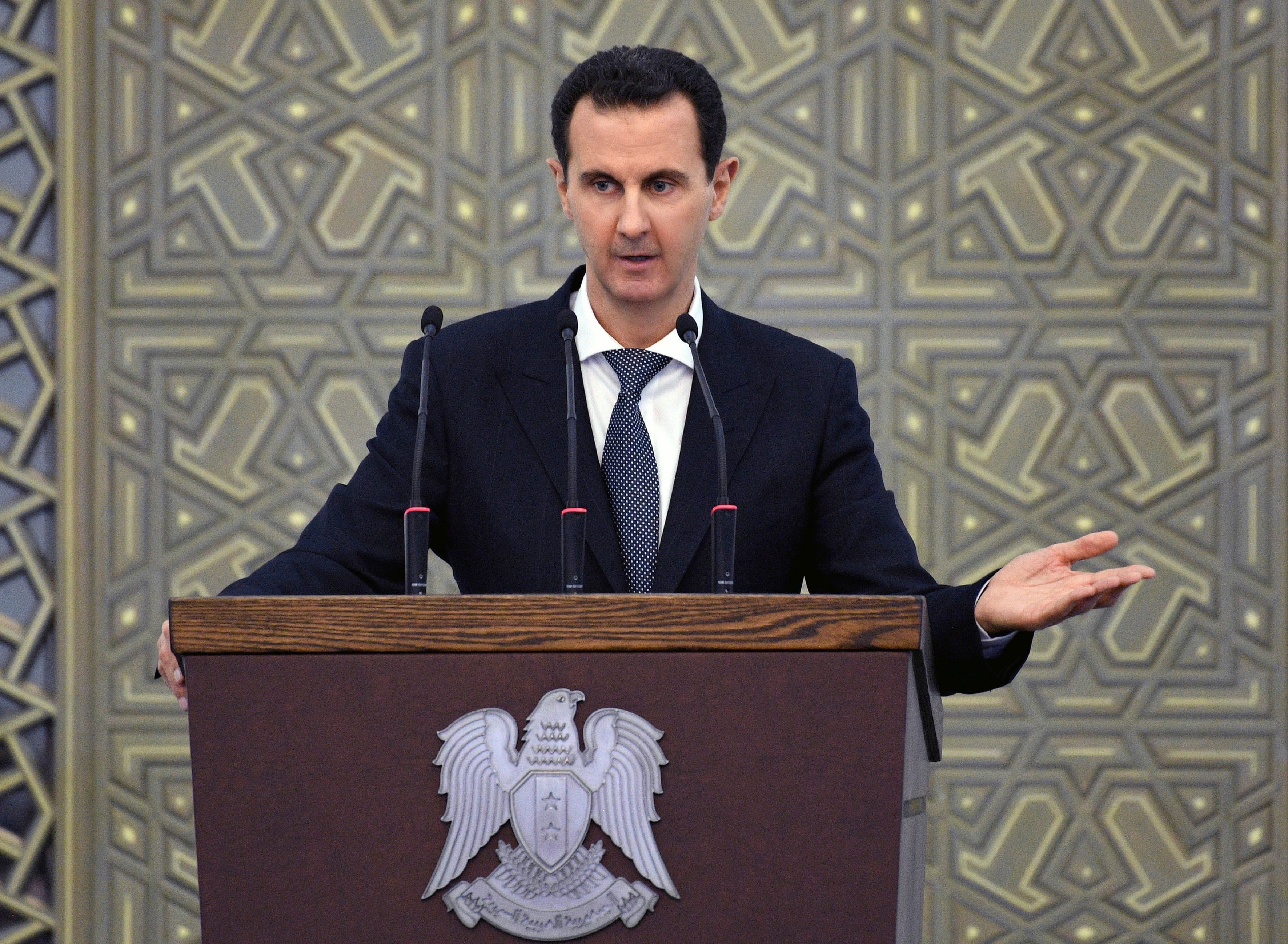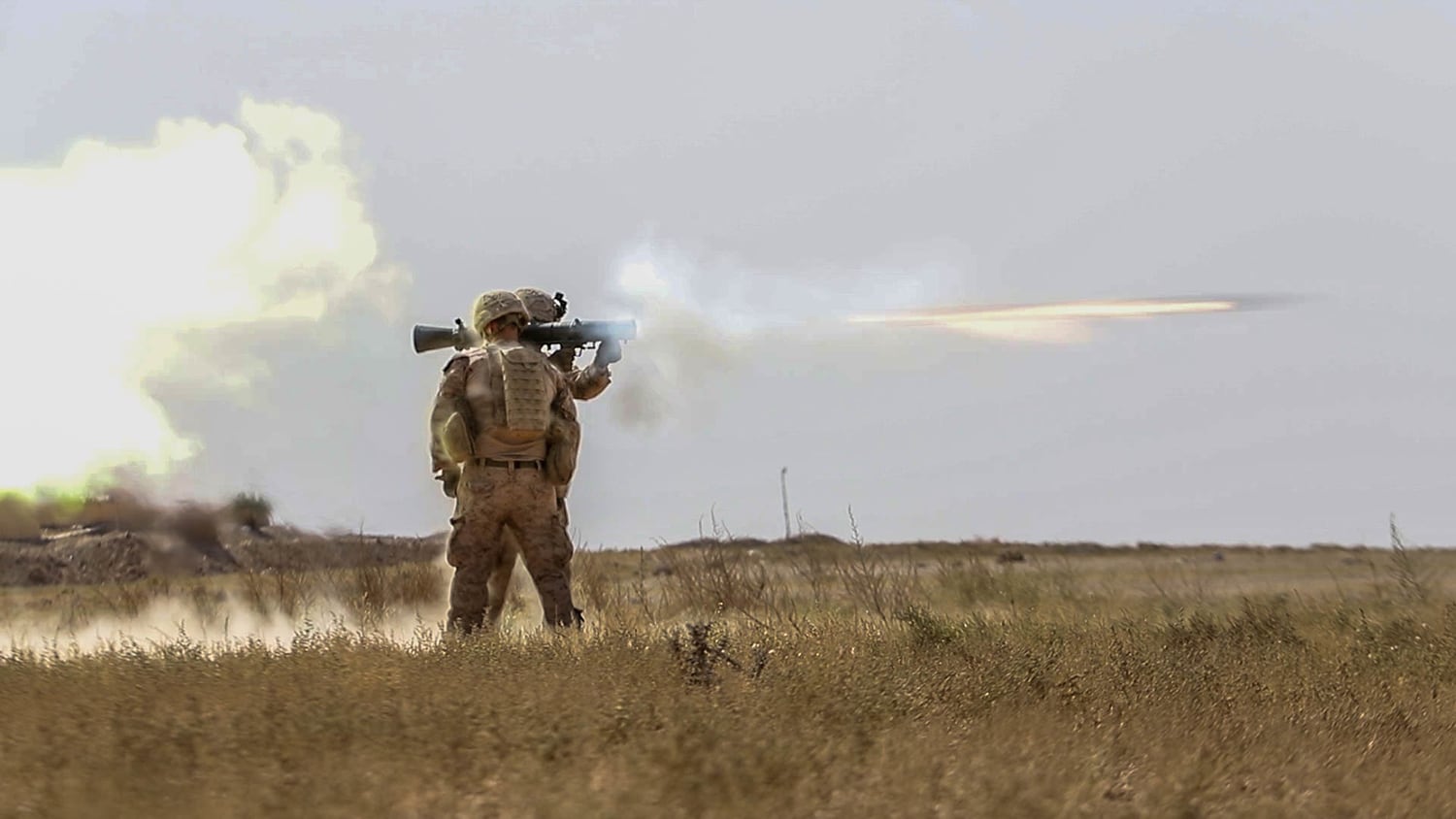UNITED NATIONS — Top U.S. and Russian diplomats discussed step-by-step implementation of a 2012 roadmap to U.N.-supervised elections in Syria that could allow a Syrian government “to move back into the international community,” the U.S. envoy for the war-torn country said Wednesday.
Ambassador James Jeffrey's comments indicated a new U.S.-Russian engagement on efforts to end the eight-year Syrian conflict that has killed over 400,000 people and lift Syria's isolation in the West and elsewhere.
But Jeffrey cautioned that "this is just a potential way forward." He noted there have been no steps such as a cease-fire in the last rebel-held stronghold in Idlib that the Trump administration is demanding or the convening of a committee to draft a new constitution for Syria as called for in the roadmap.
Such steps "would give us confidence that the Assad regime actually understands what it must do to help end this conflict," he told reporters after a closed Security Council meeting on Syria's political situation.
RELATED

Jeffrey, the U.S. special representative for Syria engagement, spoke of discussions that he and Secretary of State Mike Pompeo had in the Russian Black Sea resort of Sochi in mid-May with Russian President Vladimir Putin and Foreign Minister Sergey Lavrov.
"In terms of working with the Russians in Sochi, we believe that there is a sincere interest in finding a solution to this conflict," Jeffrey said. "But this is going to take hard decisions — hard decisions not only by us, but hard decisions by the Russians and hard decisions, most of all, by the Syrian regime."
The June 30, 2012, Geneva agreement on a blueprint for peace in Syria was approved by representatives of the U.N., Arab League, European Union, Turkey, and all five veto-wielding Security Council members — the U.S., Russia, China, France and Britain.
It calls for a Syrian-led political process starting with the establishment of a transitional governing body vested with full executive powers, moving on to the drafting of a new constitution, and ending with elections. The Security Council unanimously endorsed the agreement in Resolution 2254 adopted in December 2015 that set a timetable for talks and a cease-fire that was never met.
Jeffrey said that at the Sochi meeting with the Russians, “we talked about ... the potential way forward to see a step-by-step implementation of U.N. Resolution 2254 in return for steps that would allow a Syrian government that adheres to 2254 to move back into the international community.”
The United States initially insisted that any future Syrian government must not include President Bashar Assad, but it appears to have dropped that demand. Jeffrey's comment wasn't clear on whether Assad could remain in power if he adhered to Resolution 2254 and won a U.N.-monitored election.
RELATED

Russian Deputy Foreign Minister Sergei Vershinin called the Sochi talks "positive and constructive." He said Moscow is ready to coordinate its efforts "with anybody — with American partners also — on the basis of our shared commitment to the sovereignty, territorial integrity and political independence of Syria."
Vershinin said the effort must be "about common vision of how we want to hit a sustainable political settlement in Syria being accepted by all Syrians, by the region and endorsed by the U.N. Security Council."
The council was briefed Wednesday by the U.N. special envoy for Syria, Geir Pedersen, who welcomed support from all 15 members for his efforts to end the fighting in Idlib and to move ahead on the political front.
He reiterated that "we are very close" to forming a 150-member committee to draft a new constitution, saying political will is needed to reach agreement on the final names and the rules of procedure.
Pedersen said the U.S.-Russia meeting in Sochi was "extremely important and is a positive opening for a way to move forward on the political front."
"I believe that cooperation between Russia and the U.S. is essential for us to be able to move forward in the political process, and that's what I'm hearing from both my Russian friends and my American friends," he said.
But the U.N. envoy said the escalating military action in Idlib is complicating political efforts.
Fighting has raged in Idlib and surrounding areas since Syrian troops started pushing into the enclave on April 30. The U.N. says an estimated 3 million people are caught in the crossfire. For Assad, Idlib is the last stronghold to conquer before he can declare final victory over armed opposition groups.
Jeffrey, the U.S. envoy, said the Trump administration has found "overwhelming international support for an immediate cease-fire in Idlib, and this international support is only growing."
"Our conversations with the Russians have not indicated that the Russians are ready to support a full-scale offensive into Idlib," he said. "They tell us this is only a limited set of military operations against specific terrorists."
Russia's Vershinin reiterated Moscow's commitment to implement the cease-fire agreement reached with Turkey in Idlib. At the same time, he said, "it is our obligation, if not the right, to fight terrorists," saying that al-Qaida-linked Hayat Tahrir al-Sham controls 99 percent of the de-escalation zone.
If there is no cease-fire in Idlib, Jeffrey said, the U.S. is looking at “a set of primarily economic and diplomatic steps that will continue to keep this regime under pressure — and as long as the Idlib situation continues, we will look for ways to heighten that pressure.”





